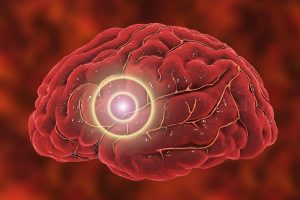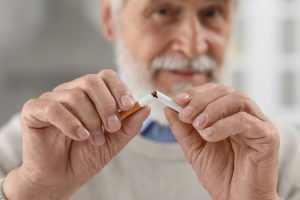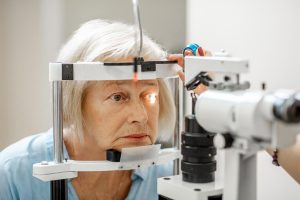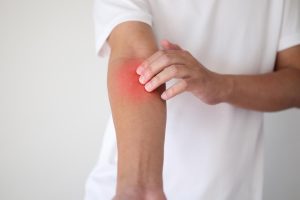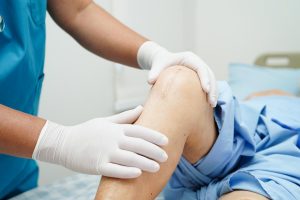Ketamine may be an alternative to shock treatment for people with treatment-resistant major depression, a new study suggests.
Currently, patients with major depressive disorder who don’t find a medication or therapy that works may undergo electroconvulsive therapy (ECT), also known as shock therapy.
But researchers have also been studying intravenous ketamine — a powerful anesthetic that’s also long been used as an illicit ‘party’ drug — as a potential antidepressant. They say the results of a new study were surprising.
“I have to say it was a wow,” said principal investigator Dr. James Murrough, director of the Depression and Anxiety Center for Discovery and Treatment at Icahn School of Medicine at Mount Sinai in New York City.
That isn’t to say that ketamine is superior to ECT, Murrough cautioned. This study wasn’t assessing that.
What it does mean is that in this comparative effectiveness trial, “by the numbers ketamine performed very well,” Murrough said.
The findings apply to patients who don’t have psychosis but have treatment-resistant major depression that has not been helped through two or three earlier medications.
The main takeaway, Murrough said, is that for doctors treating these patients, ketamine is something they could consider as an alternative to ECT.
“The take home from this study is there’s another option that’s in that conversation now that really wasn’t before in a meaningful way,” Murrough said.
Major depression is estimated to affect 21 million adults in the United States. It’s a leading cause of disability worldwide.
The study found the antidepressant response rate for patients with IV ketamine was 55%. For those receiving ECT, the response rate was 41%.
While ECT has been around for 80 years and is considered an effective and rapid treatment, it isn’t used as much as it could because of some cognitive side effects and social stigma. It involves inducing a seizure via electrical stimulation of the brain.
Other research has found that low-dose IV ketamine had a rapid antidepressant effect, according to Mount Sinai.
Many people with major depression do well “with first-line antidepressant medications, such as the serotonin selective reuptake inhibitors like fluoxetine [Prozac] and all those derivatives, and psychotherapy,” Murrough said. “But we recognize there’s a group of individuals that, unfortunately, for one reason or another, cannot get out of the depression despite multiple sequences of these types of what we would call first-line treatments.”
This randomized trial included 403 total patients from March 2017 to September 2022. It is the largest study comparing the two treatments ever done, lead author Dr. Amit Anand, director of psychiatry translational clinical trials at Mass General Brigham in Boston, said in a hospital news release.
Patients were randomized to either get ECT three times a week or ketamine twice a week for three weeks. They were followed for six months after treatment.
Participants completed a questionnaire on depressive symptoms, including memory tests and questions about quality of life.
More than half of those receiving ketamine (55%) and 41 percent of those receiving ECT reported at least a 50% improvement in their depressive symptoms and an improvement in their quality of life that lasted at least six months.
Patients on ketamine had no side effects, except for a sense of transient dissociation at the time of treatment. Those who received ECT had some memory loss and musculoskeletal issues.
Some of the unknowns
Ketamine is a low-cost dissociative drug, meaning it distorts perceptions of sight and sound and produces feelings of detachment. Although approved by the U.S. Food and Drug Administration as a sedative/analgesic and general anesthetic, it’s not approved as an antidepressant, so its use happens off-label.
It’s also considered a controlled substance, so “it does have abuse potential,” Murrough said.
Another downside: It’s not known how long a person can use it to treat depression.
“These are some of the unknowns,” Murrough said.
That these are patients without psychosis is important because ketamine has the potential to exacerbate those symptoms.
Also, patients would need to have the treatment in a medical setting so they can be monitored during the infusion, over about 40 minutes.
Dr. Andrew Leuchter is a professor of psychiatry at the University of California, Los Angeles David Geffen School of Medicine, and was not involved in this research. He said the study is an “important comparison of two of the major treatments for treatment-resistant depression.”
While the main message is that ketamine is a reasonable treatment alternative for helping people get through acute depressive symptoms, Leuchter said, another major challenge is keeping people well long term and returning them to full function.
He’d like to know more about ketamine’s impact on returning those with treatment-resistant depression to function at home, work and in life, as well as how long benefits last before a possible relapse.
“We know from ECT studies that over the first six months, unless somebody gets into treatment with an adequate prophylactic medication, that the relapse rates are frighteningly high,” Leuchter said.
There is still a lot of trial and error in depression treatment, he noted.
The study findings were published May 24 in the New England Journal of Medicine.
More information
The U.S. National Institute of Mental Health has more on major depression.
SOURCES: James Murrough, MD, PhD, director, Depression and Anxiety Center for Discovery and Treatment, Icahn School of Medicine at Mount Sinai, New York City; Andrew Leuchter, MD, professor, Department of Psychiatry and Biobehavioral Sciences, David Geffen School of Medicine, and director, neuromodulation division and senior research scientist, Semel Institute for Neuroscience and Human Behavior, University of California, Los Angeles; Mass Brigham General, news release, May 24, 2023; New England Journal of Medicine, May 24, 2023
Copyright © 2024 HealthDay. All rights reserved.












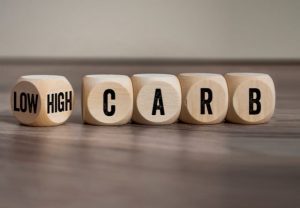


-300x169.jpg)


